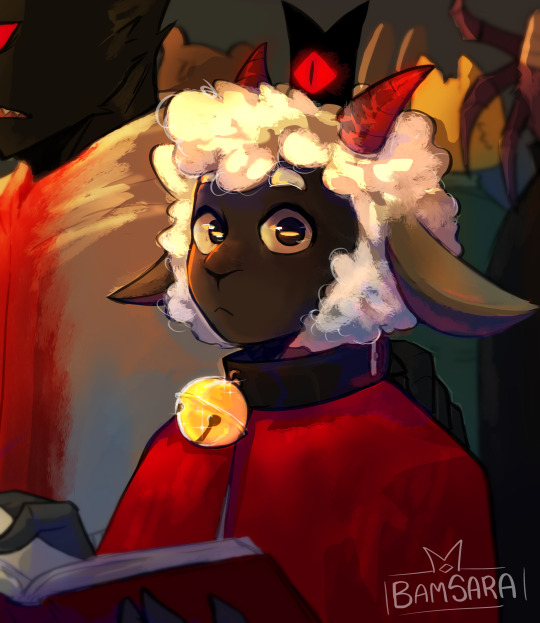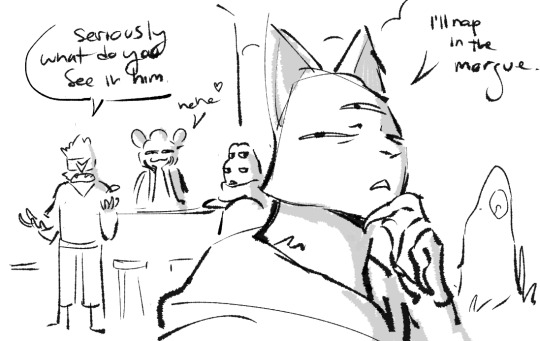Text
fandom etiquette reminders
gentle reminder that people do not have to like/ship the popular ships in a fandom. widely popularized ships do not equal canon ships and even if they were, people are allowed to have different pairings they prefer. if one fandom creator popularized things, it does not mean that every single other creator has to also do that thing.
please be respectful and considerate of the people making free content for your enjoyment as well - you never know whats going on on the other end of the screen to cause an author to not upload a new chapter or why the artist hasn't posted new art in three weeks. their boundaries are just as important as anyone else's and deserve to be respected as a basic human right.
if you're a minor, do not participate in 18+ spaces! this is for your safety as well as the safety of everyone else. if anyone over the age of 18 insists its okay for you to participate in nsfw topics with them, run. be careful with what you're posting online, too. you never know who has ill intent when interacting with you.
be also incredibly mindful that not everyone wants to participate in fandom discourse. proship/antiship discourse, ship wars, "what are your thoughts on [insert problem here]", - these are good and fun in their own respects, but can be incredibly distressing if brought up out of nowhere.
fandom is supposed to be for fun, and it isn't fun if its stressful and dangerous.
631 notes
·
View notes
Text




Gregory wonders why none of his friends from the orphanage returned his letter....he gets a chance to find out why.
463 notes
·
View notes
Text
Every Pagan Holiday

JANUARY
KALENDS
1st January
Origins: Ancient Greece/Rome
Observed by: Hellenic/Roman polytheists
Honouring Janus/Juno, first day of the Year. Kalends brought us the word 'calendar'.
ÞORRABLÓT (THORRABLÓT)
End of January/beginning of February
Origins: Iceland
Observed by: Heathens, Asatru
Midwinter Festival honouring Thor, usually by feasting and poetry.

FEBRUARY
IMBOLC
2nd February
Origins: Celtic polytheism /Ireland, as St. Brigid's Day
Observed by: Most neopagans, Wiccans, Druids, Asatru (as Charming of the Plow)
Imbolc is the most widely known and observed pagan holiday in the months of January and February. It falls at the beginning of spring/end of the winter for the Celtic peoples; marking the changing of the seasons, as most holidays do. St. Brigid is a Christianised form of or inspired by the Celtic fertility goddess Brigid who is celebrated on this day.
PARENTALIA
13th-21st February
Origins: Ancient Rome
Observed by: Greco-Roman polytheists
Translating to 'Ancestors Day', Parentalia is a nine-day celebration of deceased ancestors. Historically it was observed by feasting and making offerings and sacrifices to the dead and spirits of the underworld.
VÁLI'S BLOT
14th February
Origins: Old Norse
Observed by: Heathens, Asatru, Norse polytheists
Váli's Blot is considered by some Asatru to be the Norse equivalent of Valentine's Day but is widely acknowledged as a season changing festival. A day for marriage and celebrating with family and friends, and for remembrance of Váli, the son of Odin who defeated Höðr on this day.
LUPERCALIA
15th February
Origins: Ancient Rome
Observed by: Greco-Roman polytheists
Festival thought to honour a wolf who raised abandoned princes, celebrated originally by sacrificing goats to the gods, feasting, and, for fertility, nudity and fornication.
LESSER ELEUSINIAN MYSTERIES
17th-23rd February
Origins: Ancient Greece
Observed by: Hellenic polytheists
Initiation to the cult of Persephone and Demeter by sacrificing a pig. Prelude to Greater Mysteries, initiations held on these dates. Once completed, initiates could then move onto Greater Mysteries in the autumn.
ANTHESTERIA
27th February - 1st March 2021
Origins: Ancient Greece
Observed by: Hellenic polytheists
Athenian festivals dedicated to Dionysus and the dead. Held around the full moon in the month of Anthesterion, which in the Gregorian calendar this year roughly translates to 27th February.
THE DISTING/DÍSABLÓT
End of February/beginning of March
Origins: Uppsala, Sweden
Observed by: Heathens, Asatru, Norse polytheists
Celebration of Valkyries and other female spirits, called dísir. Sacrifices were made for a good harvest. Celebrated still by an annual market in Sweden.

MARCH
KALENDS
1st March
Origins: Ancient Greece/Rome
Observed by: Hellenic/Roman polytheists
Honouring the god Mars/Ares. Kalends brought us the word 'calendar'.
OSTARA/EARRACH
20th March
Origins: Anglo Saxon paganism, popularised as Ostara by Wicca
Observed by: Anglo Saxon Pagans, Wiccans, Neopagans, Druids (as Alba Eilir), Heathens (as Summer Finding), Ásatrú (as Sigrblót)
The northern hemisphere's vernal equinox, the word Ostara was introduced though Wicca and named for the goddess Eostre. Surprisingly unrelated to Easter in all but name, Ostara symbolises the beginning of spring. As a seasonal holiday it is widely celebrated by many different groups of pagans.
RAGNAR LODBROK'S DAY
28th March
Origins: Icelandic Sagas
Observed by: Ásatrú
Day of remembrance for Ragnar Lodbrok, Viking King of legend

APRIL
KALENDS/VENERALIA
1st April
Origins: Ancient Greece/Rome
Observed by: Hellenic/Roman polytheists
Celebration of the first of the month, this one honouring the goddess, Venus.
REMEMBRANCE FOR HAAKON SIGURDSSON
9th April
Origins: Norway, C9th
Observed by: Ásatrú
Day of remembrance for ruler of Norway who claimed lineage to Odin in the Icelandic Sagas.
WALPURGISNACHT
30th April
Origins: German Christianity, originally Saint Walpurga was known for banishing witches and other pests
Observed by: LaVeyan Satanists
Anton LaVey chose to celebrate this holiday as a follow up to the spring equinox and due to its past association with witchcraft.
HEXENNACHT (WITCHES' NIGHT)
30th April
Origins: German folklore, as Walpurgisnacht but witches were alleged to convene with the devil in this night
Observed by: Temple of Satan as 'a solemn holiday to honour those who were victimized by superstition'.

MAY
BEALTAINE/BELTANE
1st May
Origins: Celtic (Ireland/Scotland/Isle of Man)
Observed by: Wiccans, Neopagans, Celtic reconstructionist, Ásatrú/Heathens (as May Day)
One of the more well-known pagan festivals, Beltane is a festival of fire and the beginning of the summer. Also widely referred to as May Day, it is celebrated by lighting fires.
KALENDS
1st May
Origins: Ancient Greece/Rome
Observed by: Hellenic/Roman polytheists
Honouring the goddess Maia, for whom the month may have been named.
REMEMBRANCE FOR Guðröðr of Guðbrandsdál
9th May
Origins: C11 Norway, Icelandic Sagas
Observed by: Ásatrú, Norse, heathens
Guðröðr had his tongue removed by Óláfr for rebelling against violent conversion from Norse paganism to Christianity.

JUNE
KALENDS
1st June
Origins: Ancient Greece/Rome
Observed by: Hellenic/Roman polytheists
Anniversary of temples to Juno Moneta (protectress of money, her temple was where coins were made), Mars/Ares (God of war), and the Tempestates (goddesses of storms).
ARRHEPHORIA
3rd Skirophorion (translates to mid-June)
Origins: Ancient Greece
Observed by: Hellenic reconstructionist
Feast in celebration of Athena and fertility.
MIDSUMMER/SUMMER SOLSTICE
21st June
Origins: Agricultural holiday/longest day observed for centuries by many civilisations. Christianity can date to as early as C4th
Observed by: Wiccans/Germanic neopagans (as Litha), Asatru/Heathens, Druids (as Alban Hefin)
One of the main four holidays in the Wheel of the Year and popularised by Wiccans and neopagans as Litha which is taken from the Anglo-Saxon words for June/July, this is the longest day of the year and the middle point and sometimes considered the beginning of summer.

JULY
REMEMBRANCE FOR UNNR/AUD THE DEEP MINDED
9th July
Origins: C9th Iceland
Observed by: Ásatrú, Heathens, Norse reconstructionist
Aud was a traveller in the 9th century moving between Dublin, the Hebrides, Orkney, and finally Iceland following the deaths of her husband and son. This day is to honour her memory.
HERACLEIA
July/August
Origins: Ancient Greece
Observed by: Hellenic polytheists
Festival dedicated to Heracles the demigod and his death, involving feasting and celebration.

AUGUST
LUGHNASADH/LAMMAS
1st August
Origins: Celtic Britain (Ireland, Scotland, Isle of Man)
Observed by: Wiccans, Neopagans, Christians (as Lammas), Ásatrú (as Freyfaxi)
Named for the god Lugh, this festival is one of the Celtic harvest festivals and marks the beginning of the harvesting months. It was celebrated by climbing mountains, bull sacrifice, offerings, and feasting. Handfasting is commonplace with Wiccans in modern times.
REMEMBRANCE FOR REDBAD, KING OF THE FRISIANS
9th August
Origins: C7th Frisia (area of Germany/Netherlands)

SEPTEMBER
NOUMENIA
8th September
Origins: Ancient Greece
Observed by: Hellenic polytheists
Celebration of new Hellenic lunar month. Offerings of honey and incense made to household deities.
REMEMBRANCE FOR HERMANN THE CHERUSCAN
9th September
Origins: C9th CE
Observed by: Heathens, Ásatrú
Hermann the Cheruscan, also known as Arminius of the Cherusci tribe, led the defeat against the Romans at the Battle of Teutoburg Forest and is lauded for saving Eastern Germanic peoples from being conquered by the Roman Empire.
AUTUMN EQUINOX (NORTHERN HEMISPHERE)
22nd September
Origins: 1970s neopaganism
Observed by: Wiccans and Neopagans (as Mabon), Ásatrú (as Winter Finding)
Named Mabon by prominent Wicca and Neopagan Aidan Kelly, after the Welsh mythological figure Mabon ap Moldron, the autumn equinox is one of the harvest festivals and marks the beginning of autumn in the northern hemisphere. Mabon is a relatively new pagan holiday not based on any specific historical festival, but traditionally people around the world would celebrate some kind of harvest festival around the end of September/beginning of October.
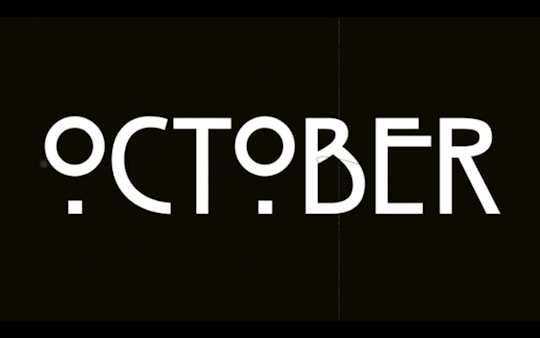
OCTOBER
PYANOPSIA
7th October
Origins: Ancient Greece
Observed by: Hellenic polytheists
Pyanopsia, or Pyanepsia, is a festival to honour Apollo, one of the most important deities, God of music, the sun, knowledge, healing, and archery - amongst other things. During the festival, two special offerings would be placed on doorways and carried to the temple. These offerings were a bean stew, and an olive branch wrapped in wool with honeys, pastries and seasonal fruits hanging from it.
REMEMBRANCE FOR LEIF EIRIKSSON
9th October
Origins: C10th CE
Observed by: Heathens, Ásatrú, Norse pagans
Remembrance for Leif and his sister Freydís Eiríksdóttir, children of Erik the Red, who are cited with being the first Norse explorers in North America.
THESMOPHORIA
12th-14th October
Origins: Ancient Greece
Observed by: Hellenic polytheists
Festival held in honour of Demeter Thesmophoros, goddess of agriculture, and her daughter Persephone, goddess of death and life, Queen of the Underworld. Celebrated primarily by women, this festival is linked with fertility, and we know very little about it due to its secretive rites. It is thought that it involved the sacrifice of pigs (although some sources say women), and abstinence.
REMEMBRANCE FOR ERIK THE RED
28th October
Origins: C9th CE
Observed by: Heathens, Ásatrú, Norse pagans
Erik the Red, probably named for the colour of his hair and beard, was the first permanent European settler in Greenland. His children were explorers too, who went to America, and although his wife converted to Christianity, Erik remained faithful to his Norse pagan gods.
SAMHAIN (HALLOWE'EN)
31st October-1st November
Origins: Gaelic - Scotland, Ireland, Isle of Man
Observed by: Celtic pagans, Neopagans, Wiccans
Pronounced SOW-in (sow rhyming with cow), Samhain was originally a harvest festival marking the beginning of winter. The day itself is the 1st November, but celebrations begin on October 31st, and this has become the accepted associated day. It's a festival of the dead, where the síthe, fae and spirits, can enter this realm from their own. Wiccans talk of a 'veil' thinning, meaning the boundary between worlds. Similar death related festivals around this time can be noted in other faiths from across the globe, and of course in the modern Hallowe'en.
WINTER NIGHTS (VETRNAETR), ÁLFABLÓT/DÍSABLÓT
31st October
Origins:
Celebrated by: Heathens, Ásatrú, Norse pagans
Winter Nights is mentioned in the Ynglinga Saga as one of the three greatest blessings of the year, the other two being Sigrblót in April, and þorrablót in late Jan/early Feb. Winter Nights is the celebration of the beginning of the winter season; Álfablót is a sacrifice to the elves, and Dísablót a sacrifice to the female spirits (dísir) and Valkyries.

NOVEMBER
REMEMBRANCE FOR SIGRID THE HAUGHTY
9th November
Origins: C9th CE
Observed by: Heathens, Ásatrú, Norse pagans
It is not actually known whether Sigrid Storråda, or Sigrid the Haughty, was an actual historical figure, an amalgamation of a few, or simply a myth. The lore goes that she was proposed to multiple times and turned down many but went on to orchestrate conflict when a potential suitor - Olaf Tryggvason, King of Norway - attempted to convert her to Christianity.

DECEMBER
REMEMBRANCE FOR EGILL SKALLAGRÍMSSON
9th December
Origins: C10th CE
Observed by: Heathens, Ásatrú, Norse pagans
Day celebrating the poet, farmer, and berserker Egill Skallagrímsson, who is recalled in The Icelandic Sagas by Snorri Sturluson. Egill is known for his many killings and escaping death by writing an epic poem after being captured when washing up on our Northumberland coastline.
SATURNALIA
17th - 23rd December
Origins: Ancient Rome
Observed by: Roman polytheists, some Hellenic
Like Yule and Lesser Dionysia, Saturnalia was the Roman winter festival celebrating the coming return of the sun and honouring the god Saturn. The standard feasting and drinking feature, and slaves would be treated as equals like Dionysia. Saturnalia is another festival cited as being picked up by Christians and used as inspiration for Christmas.
WINTER SOLSTICE (YULE/MIDWINTER)
21st December
Origins: Germanic nations, as early as C4th CE
Observed by: Norse pagans, Wiccans, Neopagans, LaVeyan Satanists, Ásatrú, Heathens, many Germanic nonpagan peoples
Yule is the midwinter festival known commonly among pagans as a time for feasting, being with loved ones, remembering ancestors, and looking forward to the return of the light and warmer days. Many pagans will celebrate Yule for more than one day, some celebrating a week either side, some for longer, up to two months, and some for twelve days afterwards. True Yule would have originally been in January for midwinter, but King Haakon the Good
moved it to coincide with the Christian celebrations in the 10th century, as told in the Ynglinga Saga.
On the 24th of December, Anglo Saxons are said to have celebrated 'Mothers Night' honouring female ancestors.
RURAL/LESSER DIONYSIA
End of December/beginning of January
Origins: Ancient Greece
Observed by: Hellenic polytheists
Smaller festival honouring the god Dionysus (Greater Dionysia took place in cities at the end of winter). Feasting, mask wearing to stop distinction between classes so that everyone could feel equal, sacrifices, parades, and phallic display were all used to celebrate.
76 notes
·
View notes
Text

Mighty Nein to finish the CR campaign group shots I've done!
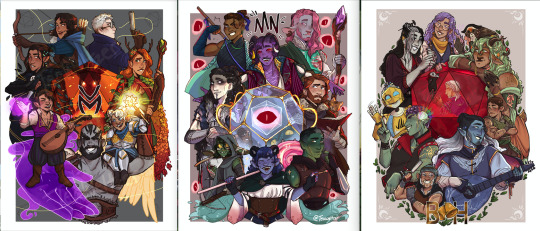
4K notes
·
View notes
Text
GAY PEOPLE
GAY PEOPLE BECAME REAL, IF ONLY FOR A FLASHBACK 😭😭😭





THEY WERE SO HAPPY WHYYYY
623 notes
·
View notes
Text

『HI I'M ALIVE I WAS JUST BUSY REDESIGNING AND REDRAWING THESE MFS <33 COMPARISONS UNDER THE CUT ¡!』




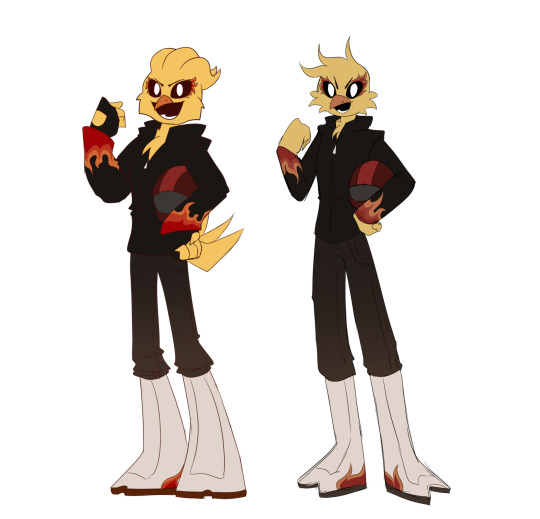



『GONNA TRY GETTIN BACK INTO THE GRIND SOON ENOUGH I PROMISE !!!』
190 notes
·
View notes
Text
What is...
On every What is Wednesdays I will explain a trope, a rhetorical device, or a literary technique in a few sentences. Put in the comments what you would like me to explain next.
What is... a drabble?
What is... dead dove?
What is... archetypal characters?
What is… deus ex machina?
What is… whump?
What is... plot bunny?
What is... canon vs. fanon?
What is… a headcanon?
What is… a plot hole?
What is… retcon?
What is… WIP?
What is… a sequel hook?
What is… a crossover?
What is… crack?
What is… a rarepair?
What is… a red herring?
What is… fluff?
What is… smut?
What is… OOC?
What is… a missing scene?
What is… Coda?
What is… a trope?
What is… Alpha vs. Beta Reader?
What is… a cliffhanger?
If you like my blog and want to support me, you can buy me a coffee or become a member! And check out my Instagram! 🥰
11K notes
·
View notes
Text
What is... dead dove?
Dead dove, do not eat - this is often found in the tags or the notes of a fanfiction. It is basically a warning sign.
What the author means with this is that the reader should take a closer look at the title, the summary and the other tags, because what they can see there is exactly what's going to happen in the story. These stories mostly contain themes that are sensitive or can be disturbing for a reader.
It's an author's way of saying: "I tagged what's going to happen in the story, so don't be surprised if those things happen."
2K notes
·
View notes
Text

New comic I'm excited about called "Catnap Says" (play on Simon says) 🐱🐶
561 notes
·
View notes




